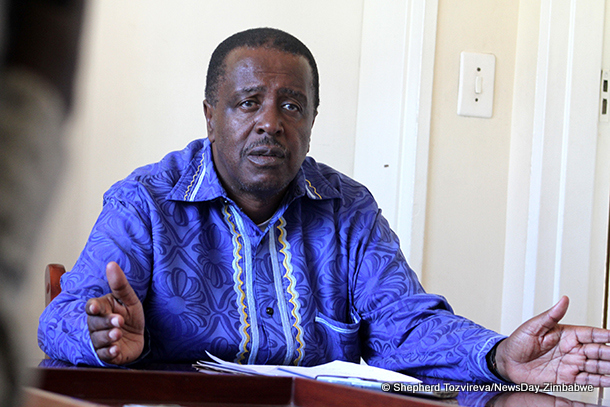
ZIMBABWE Anti-Corruption Commission (Zacc) commissioner Goodson Nguni has been accused of “manifestly improper conduct” by Higher Education minister Jonathan Moyo after allegedly orchestrating an attempt to arrest the Tsholotsho North MP on allegations of criminal abuse of office.
BY STAFF REPORTER
There is no love lost between Moyo and Nguni.
Nguni once claimed that Moyo’s plans to promote media pluralism by amending tough media laws were proof that he was “hoping to use State media and private media in a coordinated manner to destroy Zanu PF from within.”
Nguni lashed out at The Herald, while Moyo was still Information minister, after the paper carried a story naming him as the source of a NewsDay story on President Robert Mugabe’s alleged debts.
Nguni fled South Africa sometime in 1999 after he was accused of defrauding the South African Post Office in the Eastern Cape for which he worked as a regional manager.
In March 2008, the National Prosecution Authority of South Africa obtained an order in the High Court of South Africa (South Eastern Cape Local Division) authorising the curator bonis to dispose of Nguni’s property and disburse an amount of R62 800 to the State (Case number 2529/99) after the courts had established that Nguni had benefitted from his participation “in the offences of fraud and corruption” which were perpetrated against his employer.
Returning to Zimbabwe, Nguni took up political activism by joining Zanu PF structures. He was once the Zanu PF deputy information and publicity secretary for Harare Province. He later formed the Federation for Non-Governmental Organisations and named himself president.
- Chamisa under fire over US$120K donation
- Mavhunga puts DeMbare into Chibuku quarterfinals
- Pension funds bet on Cabora Bassa oilfields
- Councils defy govt fire tender directive
Keep Reading
In 2008, boasting relations with Mugabe, Nguni allegedly approached the opposition MDC claiming to have been sent by the late retired army general Solomon Mujuru “without Mugabe’s knowledge”, according to a cable leaked online by WikiLeaks which released a trove of top secret American intelligence documents from embassies around the world.
Nguni, according to the cable, “informed the MDC of the government of Zimbabwe’s intention to provoke violent confrontations nationwide as a pretext for cracking down on the opposition party and its supporters.”
The cable says Nguni presented himself as a “distant relative of a member of President Mugabe’s family”, before adding: “He has been a reliable source of information for the MDC on the thinking of senior government of Zimbabwe leaders.”
Opposition activists protested Nguni’s appointment to Zacc because of his criminal conviction. The Constitution says members of Zacc should be chosen for “their integrity”.
The Anti-Corruption Commission Act (Chapter 9:22) also says that a person is disqualified from being appointed a commissioner if he/she “has been convicted-
(i) in Zimbabwe, in respect of an offence involving dishonesty; or
(ii) outside Zimbabwe, in respect of conduct which, if committed in Zimbabwe, would have constituted an offence involving dishonesty.”
Jealousy Mawarire, a spokesman for Zimbabwe People First party, writing in December last year when Nguni was named to the commission, said “no due diligence was done.”
He said Nguni’s appointment to Zacc was “a clear indication that both Parliament and the Office of the President are not serious in their so-called attempts to fight corruption.”
The nine-member Zacc is chaired by Job Wabhira, who is deputised by Nanette Silukhuni. Other commissioners are Nguni, Christine Fundira, Denford Chirindo, Cathy Muchechetere, Thandaza Masiye Moyo, Farai Mashonganyika and Boyana Ndou.










